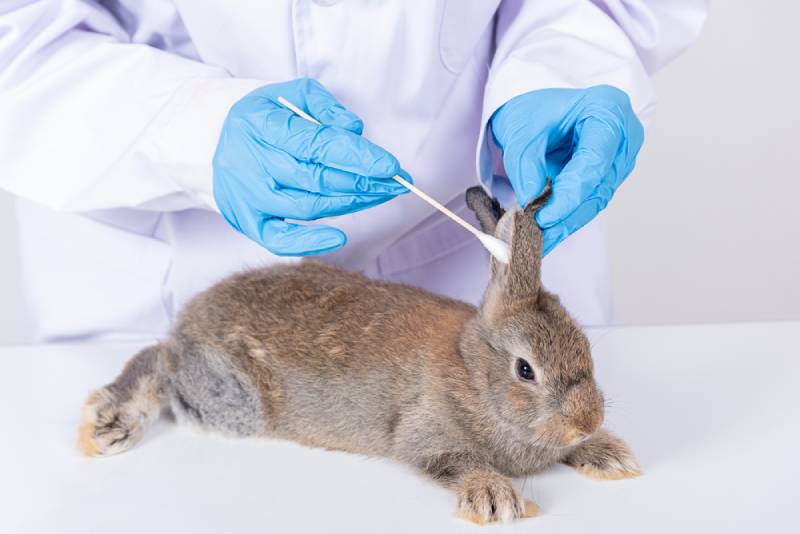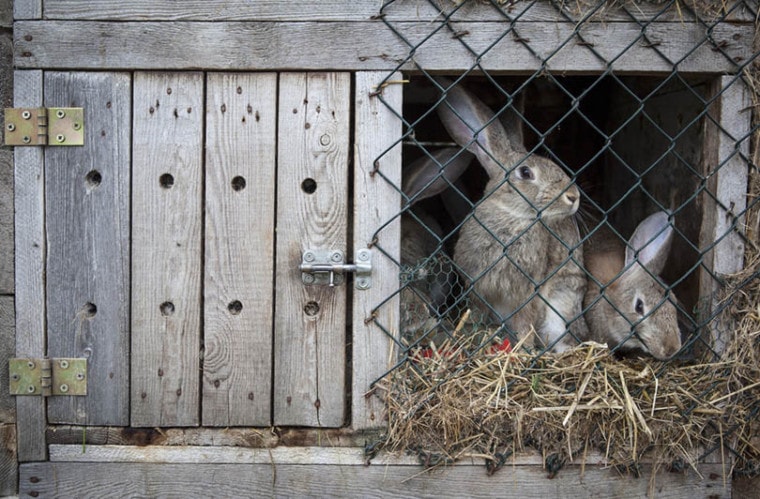
When it comes to owning a pet rabbit, there are a million questions that go through your head before making a decision. What kind of rabbit will you get? What will you call it? And, most importantly, is it going to live indoors or outdoors? Having an indoor pet rabbit is great, but some people prefer to keep them outside where they are closer to their natural surroundings. If you’re going to keep your rabbit outside, you have to ensure that you think of every possible safety measure so that you keep them around for their entire lifespan. Where do you start with all of this? Follow this step-by-step guide to owning an outdoor rabbit.
The 10 Tips to Care for an Outdoor Rabbit
Before you even think about buying a pet rabbit, you have to prepare for them in advance. If you’ve never had a rabbit before, you might not be ready to bring one home quite yet. Follow these steps to prepare for bringing your new friend home and ensure they have a safe and happy future.
1. Supplies and Equipment
Rabbits aren’t like cats and dogs where they are just fine with shelter and food. There is a lot to purchase, and you want to make sure you have everything you need before they settle in so that you can be ready for whatever type of situation arises. Here is a list of things you’ll need:
You may decide to grab some more things for your pet down the road, but this is a general list of basics that are good enough to get you started. Their home is one of the most critical items on the list. Rabbits need space to develop and they won’t thrive without it. If they are stuck in a cage too small, they could become ill or stressed and potentially injure themselves. When it comes to buying a rabbit hutch, buy one big enough for your rabbit to grow into that still provides them with some extra room, just in case.
Another essential item on this list is an exercise run. You wouldn’t want to be stuck in a cage without room to run or stretch your legs, so why put your rabbit through that? Exercise runs can be attached directly to the hutch or separate. It provides your bunny with more space where they get to run in the outdoors and feel free.
2. Setting Up the Cage
The cage is the most critical part of owning an outdoor rabbit because it is their permanent home. Line the floor of their hutch with newspapers and then fill it with some soft hay or straw, so it covers the entire bottom surface. Wet straw has to be changed daily, and you should perform a cage cleaning once every week.
Have one or two food bowls placed throughout their cage and allow them to have constant access to it. Most rabbit owners like to use one bowl for traditional rabbit feed and another for treats like kale, cabbage, and broccoli. Clean the bowls once every week with hot soapy water and let them dry completely before filling them again.
All animals need access to lots of clean drinking water. Bowls or bottles are both excellent choices. However, if you decide to use a bottle, check that the tube doesn’t get blocked so they can stay hydrated. Top off the water supply every time it gets low so that there is always plenty available for them.
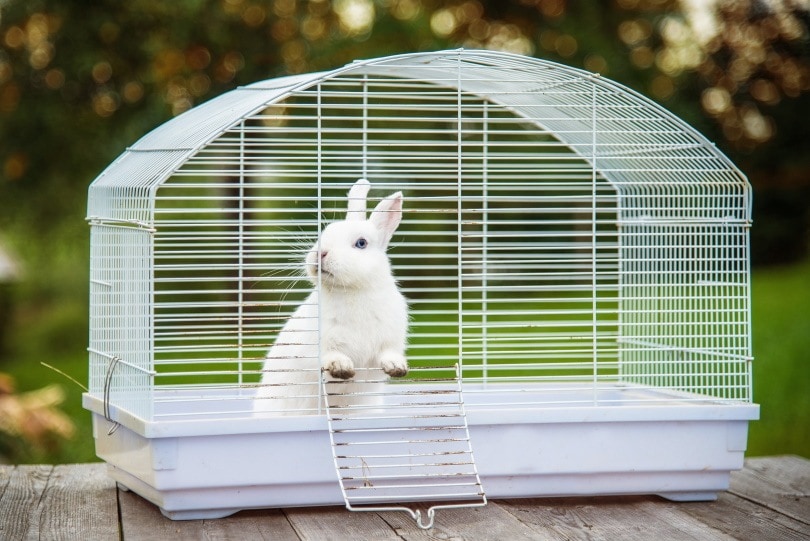
3. Protect Your Rabbit
Keeping your rabbit outside has a lot of benefits, but there is one big disadvantage as well. The outdoors has predators, and your pet is at the bottom of the food chain. This isn’t to say that they can’t live safe lives outside, but you need to put extra security measures into place so that they aren’t exposed to the elements or at risk of being taken by someone or something.
Rabbits were born for the outdoors and enjoy spending time out in the fresh, open air. However, if temperatures get too hot or cold, this could lead to some dangerous situations for them. Bunnies might overheat in the summer, so they need to have a place where there is shade for them to cool off and lots of water to stay hydrated. Winters can be harsh, especially if you live in northern climates. If you’re expecting a drastic temperature drop or storm overnight, bring them inside until the conditions settle down.
Because of the weather and predators roaming freely, you want to check your hutch daily. Hutches or cages should be weatherproof and a place where they can protect themselves from bad weather. You also don’t want any loose doors or wiring that they could squeeze through. On top of that, their food and droppings attract pests, so make sure to keep the cage as clean as possible.
4. Give Your Bunny Attention
Rabbits enjoy your company and are going to live very lonely lives if you don’t give them the love and attention they deserve. You should spend time with your rabbit every single day for at least half an hour. They are social creatures and will be a lot happier when they’re stimulated.
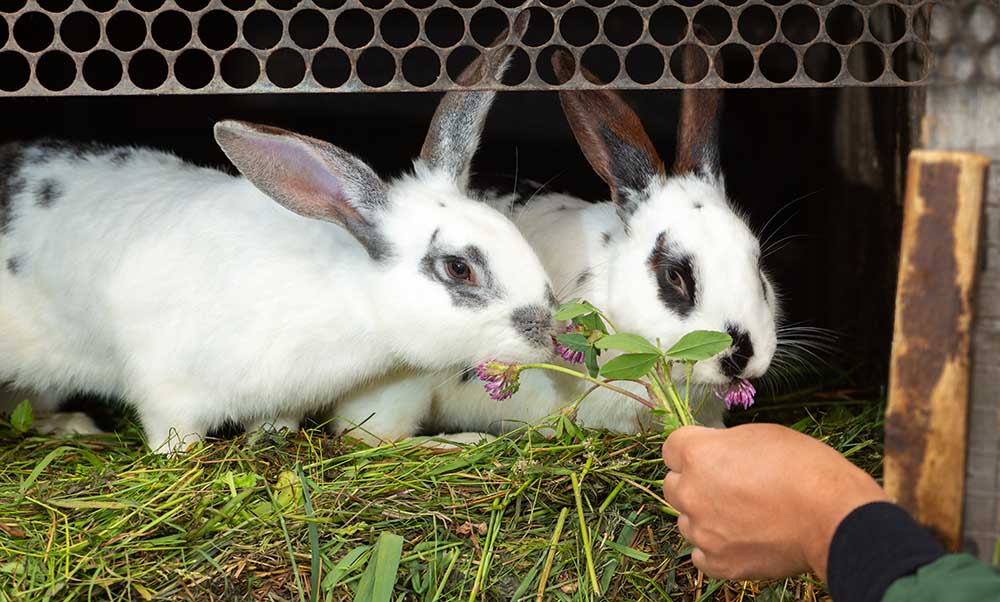
5. Stimulate Your Rabbit with Toys
Toys keep your rabbits mentally and physically stimulated. They thrive from an active mind and fit bodies. It’s possible that they get bored after a while, so switch them out every couple of weeks so that they are always doing something new. Here are some things that bunnies like playing with:
6. Socializing Rabbits
Rabbits are prey species and very cautious around new surroundings. They each have individual personalities and don’t often like another rabbit intruding on their space. Rabbits from the same litter usually do fine being around one another but be careful when introducing them to a new friend. Consider getting them neutered so that they don’t accidentally get pregnant and leave you with another litter to care for.
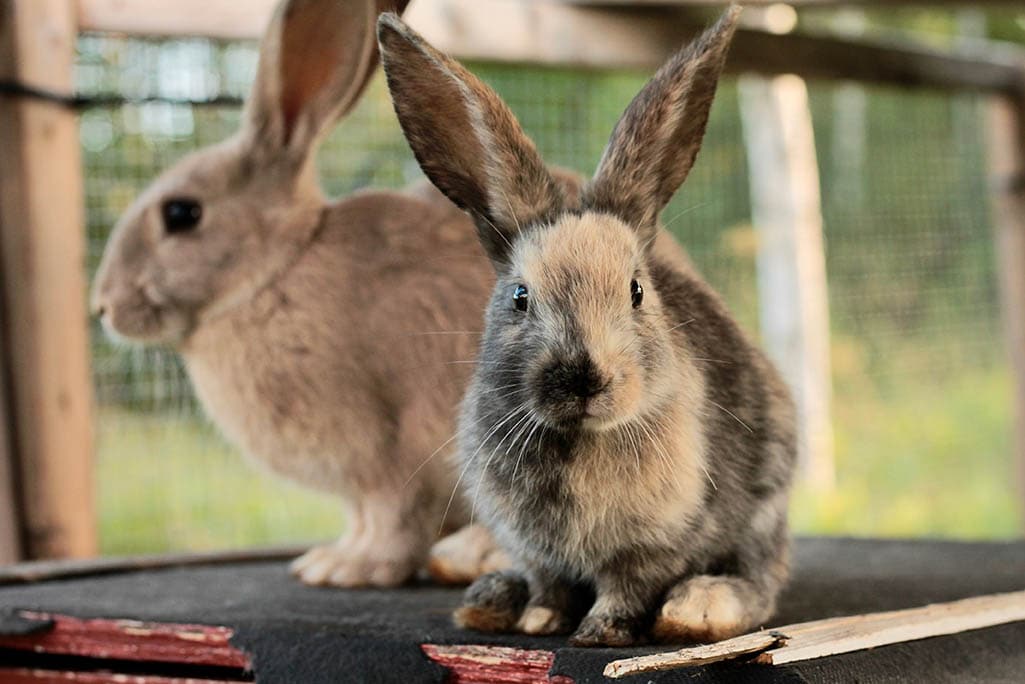
7. Handling Rabbits
As we mentioned before, rabbits are highly cautious and loud noises or fast movements might scare them. Before picking them up, allow them to get used to your presence. If they seem calm, gently pick them up or wait for them to approach you. Do not ever pick them up by the ears. You want to have a firm grip so they don’t get loose but also be gentle enough that you don’t hurt them. Many rabbits like to be cradled against your body with their feet resting on your forearm.
8. Register the Rabbit at the Vet’s Office
Like cats and dogs, rabbits need health checkups too, and the sooner you can register them at your local vet’s office, the sooner the vet can confirm that they are in good health. They will also vaccinate your rabbit and advise you on the next steps for neutering them. Don’t be afraid to ask your vet any questions you have about your new pet so that you get the most informative advice possible.
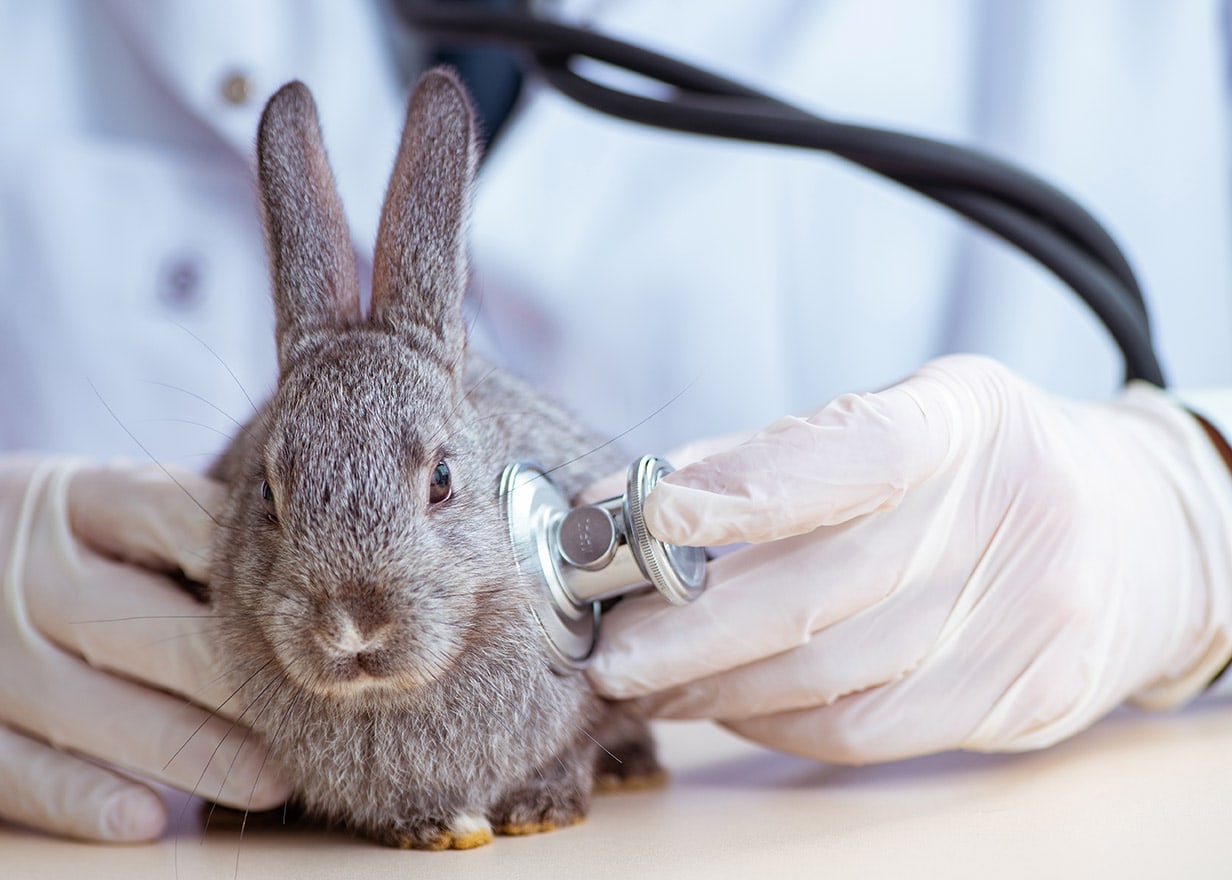
9. Consider Getting Pet Insurance
Accidents and illnesses happen, and if you don’t have pet insurance, it could leave you with a pretty hefty bill. Insurance protects you from loss, theft, and death from illness or injury. Look around to find the best policy and decide if it is a good investment for you.
10. Grooming Your Bunny
Bunnies require some maintenance and you have to be dedicated to grooming them. They get hairballs and overgrown teeth that you have to keep in check. Brush your rabbits a few times a week. Rabbit chews are available at most pet supply stores and keep your rabbits stimulated and their teeth at a reasonable length.
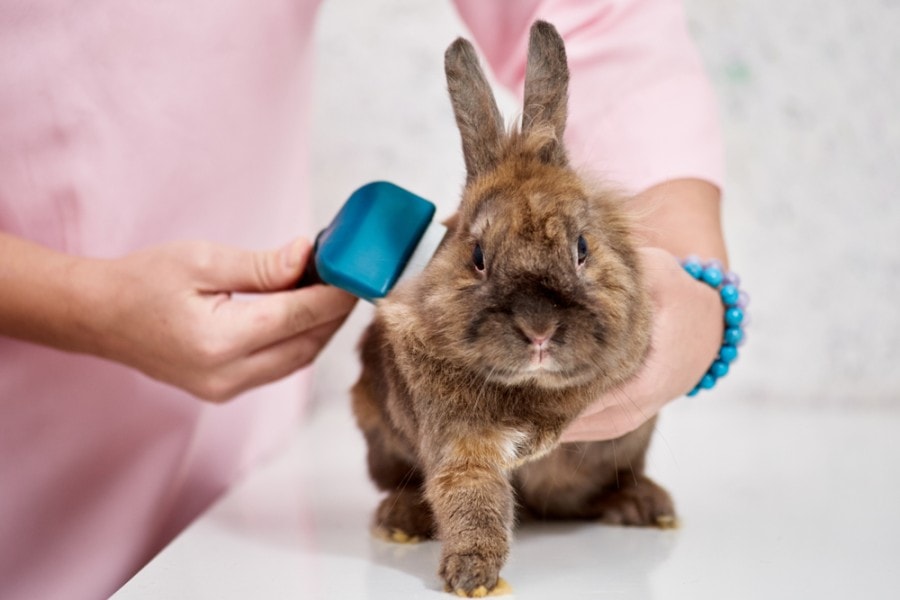
Final Thoughts
Pet rabbits are a lot of work and if they’re going to live outside, you want to make sure they have the cleanest, healthiest, and safest environment possible. If you put in the time to be with them, their personalities start to shine through and you’ll wonder why you didn’t get one sooner.
Featured Image Credit: Grzegorz Petrykowski, Shutterstock




